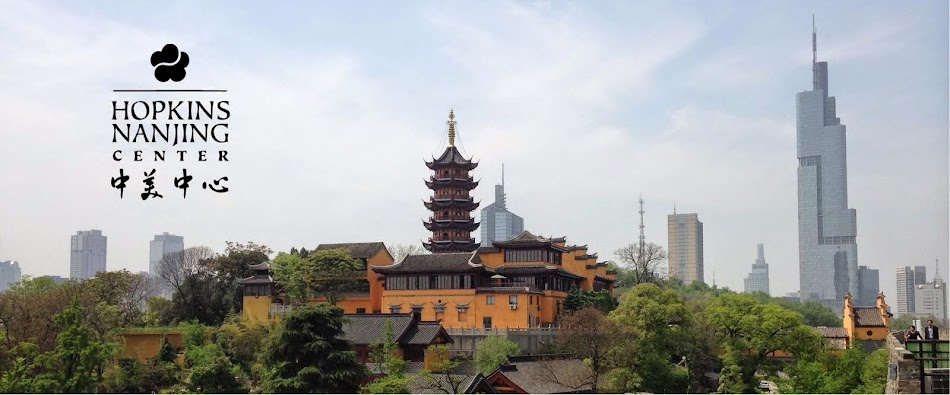Building China into Your Career:
Expersts' Perspectives from the Classroom to the Workplace
Event Details
Mr. Kuhn and the panelists–including Ashleigh Au, Special Assistant to CEO, SOHO China and Secretary, SOHO China Scholarships; Jim Heller, Acting Political Minister-Counselor, U.S. Embassy in Beijing; Abe Sorock, Founder, ATLAS China–will share their on-the-ground experiences in China and also give the audience a chance to take part in the dialogue. Robbie Shields, Student Career Counselor at HNC, will moderate the event. There will be a wine and networking reception following the discussion
Time: Thursday, December 3, 2015 7:00-9:30pm
Location: Golden Bridges/Project Pengyou Courtyard, No. 65 Xiaojingchang Hutong, Guloudong Ave, Beijing
RSVP: RSVP@projectpengyou.org by Dec. 1 (Please include your name and affiliation)
Keynote Speaker:
Anthony Kuhn
Beijing Correspondent, National Public Radio
Anthony Kuhn has worked as a foreign correspondent for NPR since
2004. He has been based in Beijing since 2013, and previously, from 2005
to 2010. He has also been based in London (2004-2005) and Jakarta
(2010-2013) for NPR. Previously, he worked for the Far Eastern Economic
Review, the Los Angeles Times, and other media in Beijing. He graduated
from the Hopkins-Nanjing Center in 1992, and received his BA from
Washington University in St.Louis. He first visited Japan in 1964, and
Beijing in 1982. He feels lucky to be researching and informing
listeners/readers about topics that intrigued him as a student at the
Hopkins-Nanjing Center. He has interviewed his former teachers and
returned to the center to speak to students about his work.
Panelists:
Special Assistant to CEO, SOHO China and Secretary, SOHO China Scholarships
Ashleigh Au is a Public Relations and Communications Professional with
over 10 years of China experience. She has worked with SOHO China, the
largest prime office property developer in Beijing and Shanghai, for the
past six years. She is now Special Assistant to the CEO, one of Chinaʼs
foremost entrepreneurs, and Secretary, SOHO China Scholarships, where
she oversees a US$100 million initiative to endow financial aid
scholarships for Chinese students at top international universities.
Ashleigh earned a Graduate Certificate in Chinese and American Studies
from the Hopkins-Nanjing Center in 2008 and a BA with distinction in
East Asian and Latin American Studies from the University of Toronto.
Jim Heller
Acting Political Minister-Counselor, U.S. Embassy in Beijing
Jim Heller is a Foreign Service Officer currently serving as the Acting Political Minister-Counselor at the U.S. Embassy in Beijing. Prior to this assignment, he was the Political Section External Unit Chief at the U.S. Embassy in Seoul. He has also served in Kyiv, in Beijing (1999-2002), and with Regional Reconstruction Team Erbil in Iraq. In Washington, Jim has served as a Senior Watch Officer in the State Department’s 24/7 Operations Center, as the Korea Desk’s ROK Unit Chief, as a desk officer in the European Bureau’s Office of Ukraine, Moldova, and Belarus Affairs, and as an economic officer in the Economic Bureau’s Office of Multilateral Trade Affairs. Jim has a B.A. and M.A. from the University of Michigan and is a Hopkins-Nanjing Center graduate.
Abraham Sorock
Founder and CEO, ATLAS China
Abraham Sorock founded Atlas China in 2012 help companies hire and manage Mandarin speaking international talent. The firm has provided consulting and staffing services for Western and Chinese clients, ranging from Fortune 500s and industry leaders like Merck and Haworth to highly specialized and growing technical companies. Abraham is a Mandarin speaker educated at the Hopkins- Nanjing Center and University of Wisconsin-Madison. He is a committee chair for AmCham China and previously led the Beijing branch of the Jewish cultural Moishe House.
Moderator:
Robert "Robbie" Shields
Student Career Counselor, Johns Hopkins University - Nanjing University Center for Chinese and American Studies
Robbie Shields is the Student Career Counselor at the Johns Hopkins University – Nanjing University Center for Chinese and American Studies (HNC). He works to help HNC students and alumni identify and achieve their career goals, while also managing employer relations in the Asia Pacific region for the HNC and SAIS. Prior to joining the HNC in 2012, he worked at the University of Floridaʼs Warrington College of Business Administration as an Advisor and Career Counselor. In addition to his work in education, Robbie has served as a clerk at the Federal Public Defenderʼs Office in Las Vegas, and the Alexandria Public Defenderʼs Office in Alexandria, Virginia. He holds a Bachelor of Arts in History from the University of Tennessee and a Juris Doctor from the University of Florida.
Jim Heller
Acting Political Minister-Counselor, U.S. Embassy in Beijing
Jim Heller is a Foreign Service Officer currently serving as the Acting Political Minister-Counselor at the U.S. Embassy in Beijing. Prior to this assignment, he was the Political Section External Unit Chief at the U.S. Embassy in Seoul. He has also served in Kyiv, in Beijing (1999-2002), and with Regional Reconstruction Team Erbil in Iraq. In Washington, Jim has served as a Senior Watch Officer in the State Department’s 24/7 Operations Center, as the Korea Desk’s ROK Unit Chief, as a desk officer in the European Bureau’s Office of Ukraine, Moldova, and Belarus Affairs, and as an economic officer in the Economic Bureau’s Office of Multilateral Trade Affairs. Jim has a B.A. and M.A. from the University of Michigan and is a Hopkins-Nanjing Center graduate.
Abraham Sorock
Founder and CEO, ATLAS China
Abraham Sorock founded Atlas China in 2012 help companies hire and manage Mandarin speaking international talent. The firm has provided consulting and staffing services for Western and Chinese clients, ranging from Fortune 500s and industry leaders like Merck and Haworth to highly specialized and growing technical companies. Abraham is a Mandarin speaker educated at the Hopkins- Nanjing Center and University of Wisconsin-Madison. He is a committee chair for AmCham China and previously led the Beijing branch of the Jewish cultural Moishe House.
Moderator:
Robert "Robbie" Shields
Student Career Counselor, Johns Hopkins University - Nanjing University Center for Chinese and American Studies
Robbie Shields is the Student Career Counselor at the Johns Hopkins University – Nanjing University Center for Chinese and American Studies (HNC). He works to help HNC students and alumni identify and achieve their career goals, while also managing employer relations in the Asia Pacific region for the HNC and SAIS. Prior to joining the HNC in 2012, he worked at the University of Floridaʼs Warrington College of Business Administration as an Advisor and Career Counselor. In addition to his work in education, Robbie has served as a clerk at the Federal Public Defenderʼs Office in Las Vegas, and the Alexandria Public Defenderʼs Office in Alexandria, Virginia. He holds a Bachelor of Arts in History from the University of Tennessee and a Juris Doctor from the University of Florida.














